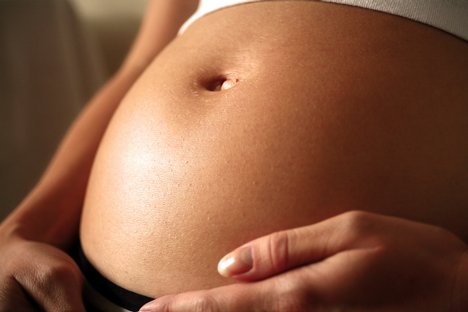Long-awaited policy on pregnant learners promises a new dawn
The Department of Education’s Learner Pregnancy Policy is a positive step but has shortcomings

Photo: Canwest News Service via Wikipedia
In the first quarter of 2021, more than 36,000 babies were delivered to girls between the ages of ten and 19. Whilst this figure produced a public outcry, such a statistic is nothing new. The Department of Basic Education (DBE) annual report in 2014 reflected that over 18,000 learners had fallen pregnant. By the end of 2020, the number sat at 33,000.
But the focus should not only be on the number of learners falling pregnant and should also be on the serious implications this has on the right to education.
In September 2021, the Department of Education (DBE), briefing the Portfolio Committee on Basic Education, stated that one in three girls who fall pregnant do not return to school. Policy has been long-overdue to reduce learner pregnancy and dropout, and to safeguard learners’ rights to access education both during and after pregnancy.
After many years of inaction, the DBE has finally launched its Learner Pregnancy Policy, meant to address a legislative vacuum that resulted in discriminatory and exclusionary practices which in turn led to learner dropout.
The policy is to some extent grounded in the interests, advancement and protection of the rights to education, dignity and privacy of pregnant learners. But, it is still exclusionary.
A joint submission by the Equal Education Law Centre and SECTION27 on the draft policy, highlighted an issue around the possible exclusion of learners who were pregnant or who had given birth. The draft policy stated that “every female learner of school age … may not be denied access on the basis of her pregnancy, termination thereof, or consequent motherhood”.
But if this clause, regrettably carried through to the final policy, is interpreted in line with the compulsory school attendance age of seven to 15, as it stands in the South African Schools Act, this could mean that learners who do not fall within that age group are not protected by the policy.
Equal Education Law Centre and SECTION27 had also submitted that the policy needed to provide further guidance on what reasonable accommodations, at a minimum, a school must make in order to ensure the retention of pregnant learners while pregnant and when they return after giving birth.
Reasonable accommodations are adjustments that schools can make in order to accommodate a learner based on a need. For instance, once a learner has given birth, she will need a certain amount of time to recover. Accordingly, she should be accommodated in a way that she may learn from home during this period. The policy is silent on what such accommodations will be, leaving learners none the wiser as to what they are entitled to after giving birth.
School governing bodies (SGBs) need to review their policies and ensure that they align with the Learner Pregnancy Policy. Schools have a constitutional mandate to promote and protect the constitutional rights of every learner, pregnant or not. SGBs must ensure the retention and active support of pregnant learners. The cornerstone of every school policy should be that “no educator, staff member or fellow learner may discriminate against, humiliate or abuse a learner physically, emotionally or psychologically based on their pregnancy or post-pregnancy status”.
DBE deputy director-general Granville Whittle said, “Schools offer a protective environment to learners … for the most vulnerable young people, education remains lifesaving. Education is protective, schools provide spaces of support, nutrition and feeding programmes, psychosocial support and sexual and reproductive and health services.”
But contrary to Whittle’s sentiments, schools have been spaces where pregnant learners are ostracised and ridiculed. Often people argue that learner pregnancy is a contributor to learner dropout, but that is not correct. It is not the pregnancy in and of itself that leads to dropout, but rather the discrimination and lack of support that pregnant learners face.
The right to education is unequivocal, without an end and independent. Learners have the right to access education during and after their pregnancies and government has an obligation to ensure this.
Views expressed are not necessarily those of GroundUp.
Next: Striking drivers forcefully stop and inspect trucks in Gqeberha
Previous: Soweto youths turn dumpsite into thriving food garden
© 2022 GroundUp. This article is licensed under a Creative Commons Attribution-NoDerivatives 4.0 International License.
You may republish this article, so long as you credit the authors and GroundUp, and do not change the text. Please include a link back to the original article.
We put an invisible pixel in the article so that we can count traffic to republishers. All analytics tools are solely on our servers. We do not give our logs to any third party. Logs are deleted after two weeks. We do not use any IP address identifying information except to count regional traffic. We are solely interested in counting hits, not tracking users. If you republish, please do not delete the invisible pixel.


